Natida, a Compassion child worker, furrows her brow and chews on the end of her pen as she sits at the edge of her seat in the tense silence of a classroom. Child workers from five other Child Development Centers sit in schoolchildren’s seats around her.
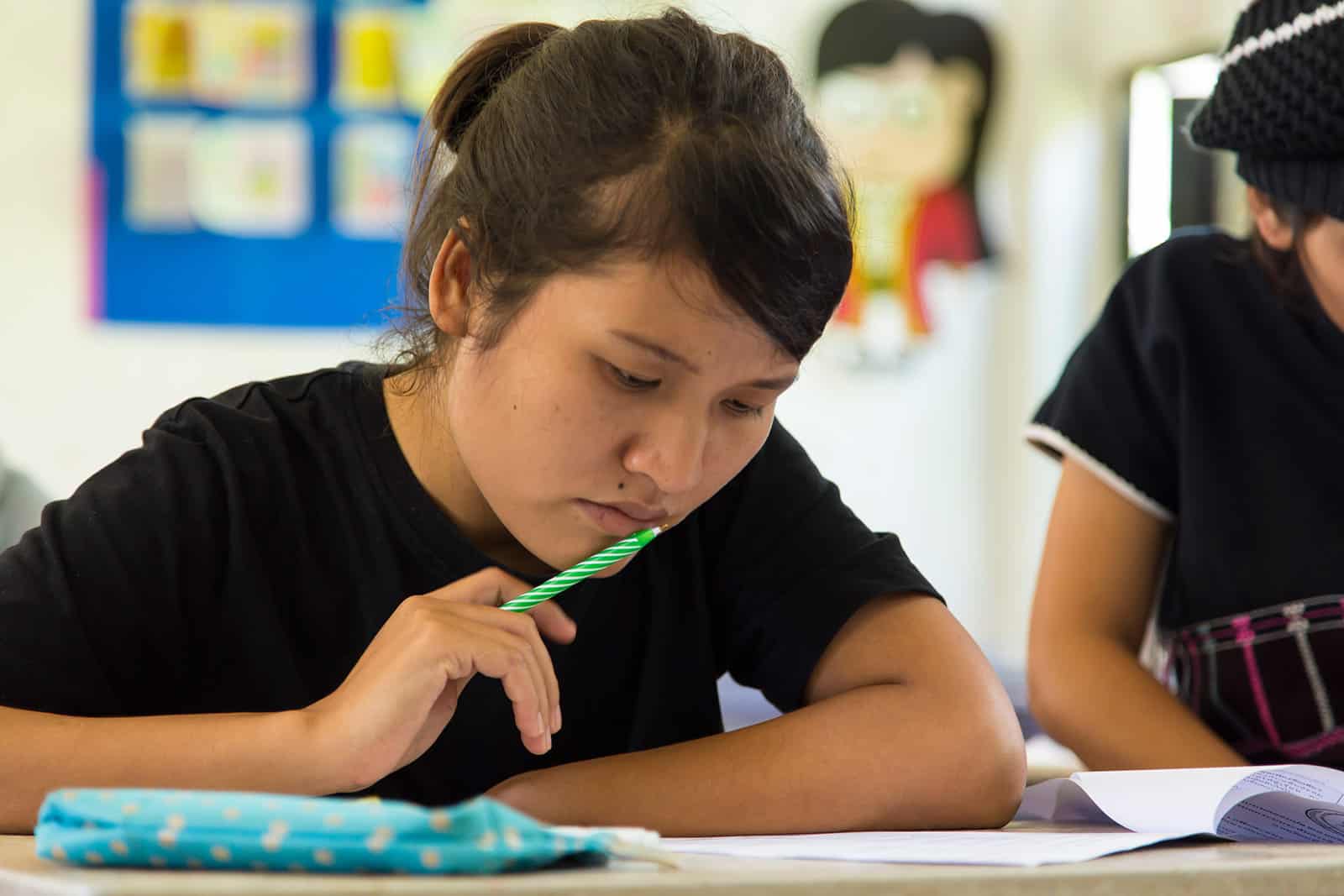
Worawut, the center’s director, explains why they’re here. “They’re learning a lot at these classes,” he says. Because these workers are members of one of Thailand’s many ethnic minorities, “we can’t speak Thai very well.”
Here at these literacy classes, his staff learn to read and write in Thai, making up for the education they didn’t have access to as children.
“I think what they are learning is great, because they will bring this information back and teach our mothers and our children. They will be able to teach Thai language as well as math and other things.”
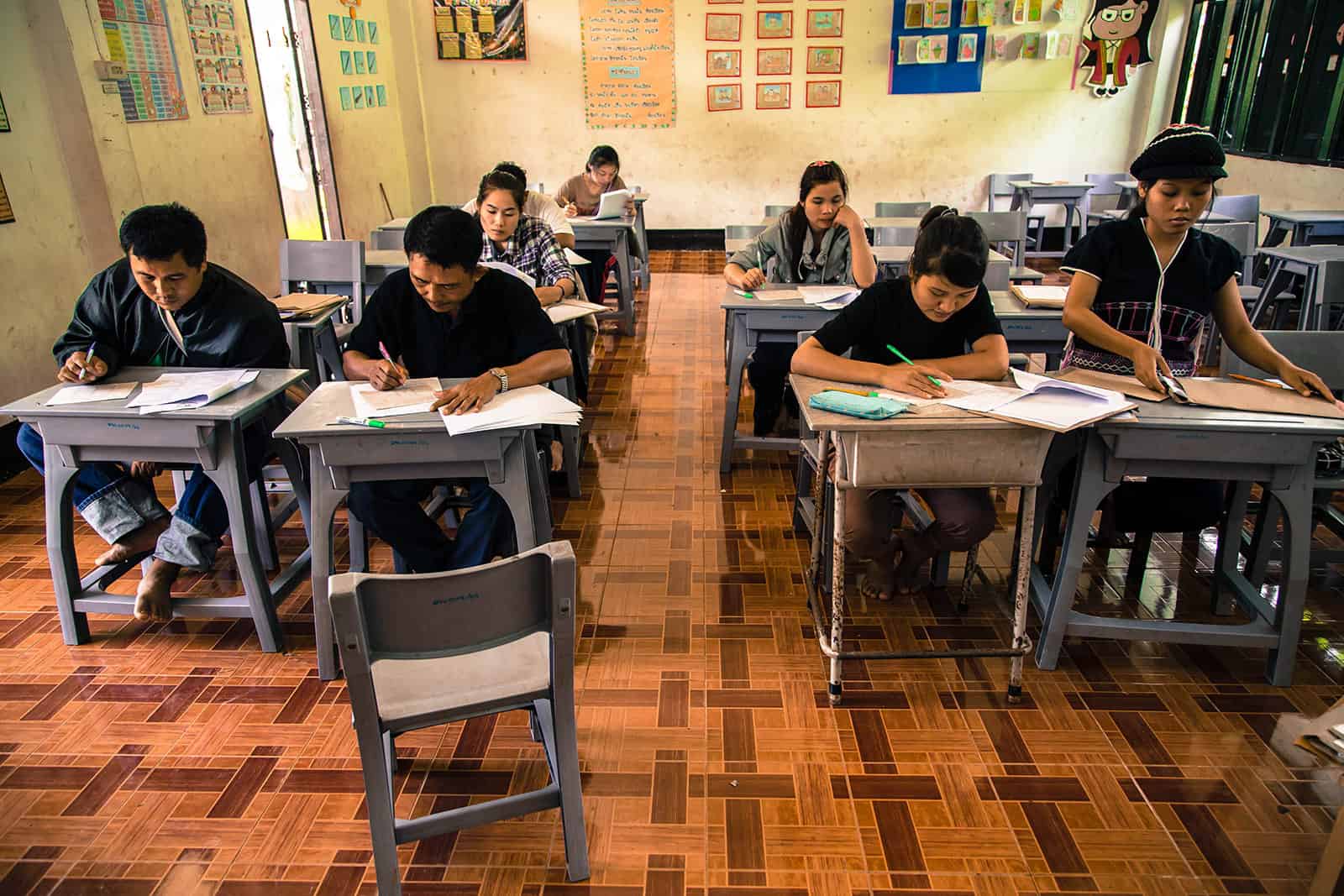
Sydney J. Harris, a 20th century journalist, once said:
“The whole purpose of education is to turn mirrors into windows.”
Like a hall of mirrors, poverty can surround a child with its never-ending reflection of their lack and hopelessness, reminding them daily of where they are. Poverty perpetuates a cycle of self-defeat: telling them that without an education, they are too dumb to ever receive an education.
Natida sits in a classroom today because she wants to turn those mirrors into windows, to show the children in her project a world of opportunity and a path to get there. But first, she has to fight that battle for herself.
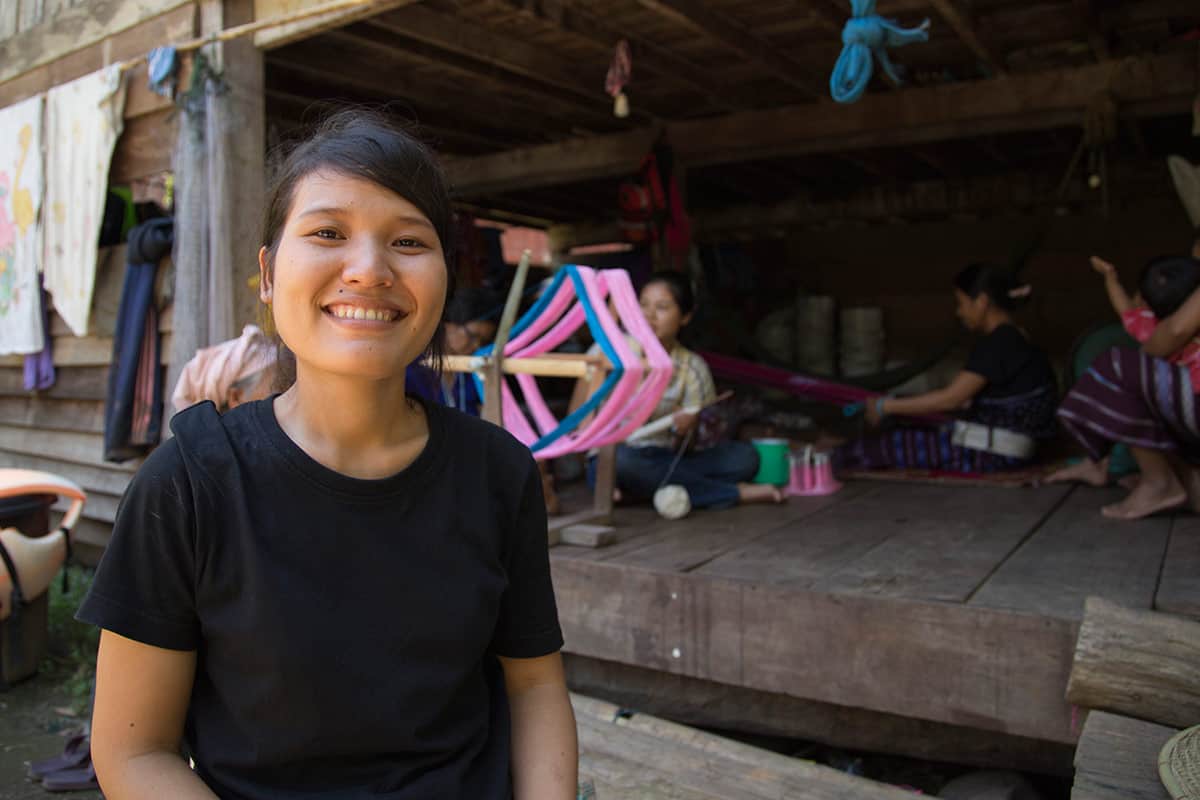
Like her colleagues, Natida speaks Thai, but barely. Her elderly mother can only speak the tribal Karen language. While we work hard to preserve children’s cultural heritage, Natida’s language barrier hampers her ability to teach her pupils and care for Child Survival Program mothers.
“I learn Thai so I can teach Thai,” she says. “We have to know it well so we can prescribe the right medicines at the right amounts. I also have to teach our CSP mothers how to read and understand prescriptions for themselves and for their children.”
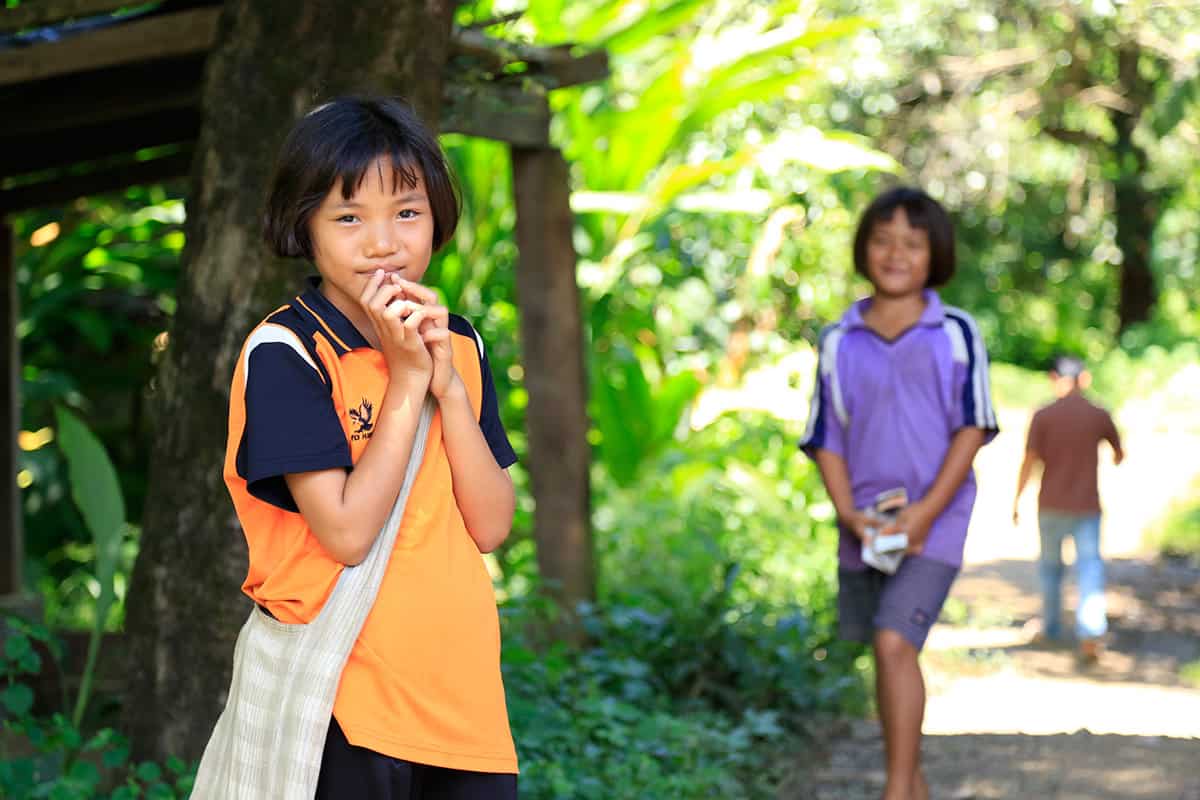
If education is about changing mirrors to windows, a bright new future is about to open up for children in Thailand, thanks to these diligent child workers. Rather than just telling their pupils the importance of seeking education, these workers are showing them with their own lives that the poverty of education is a battle that can be won, no matter your age.
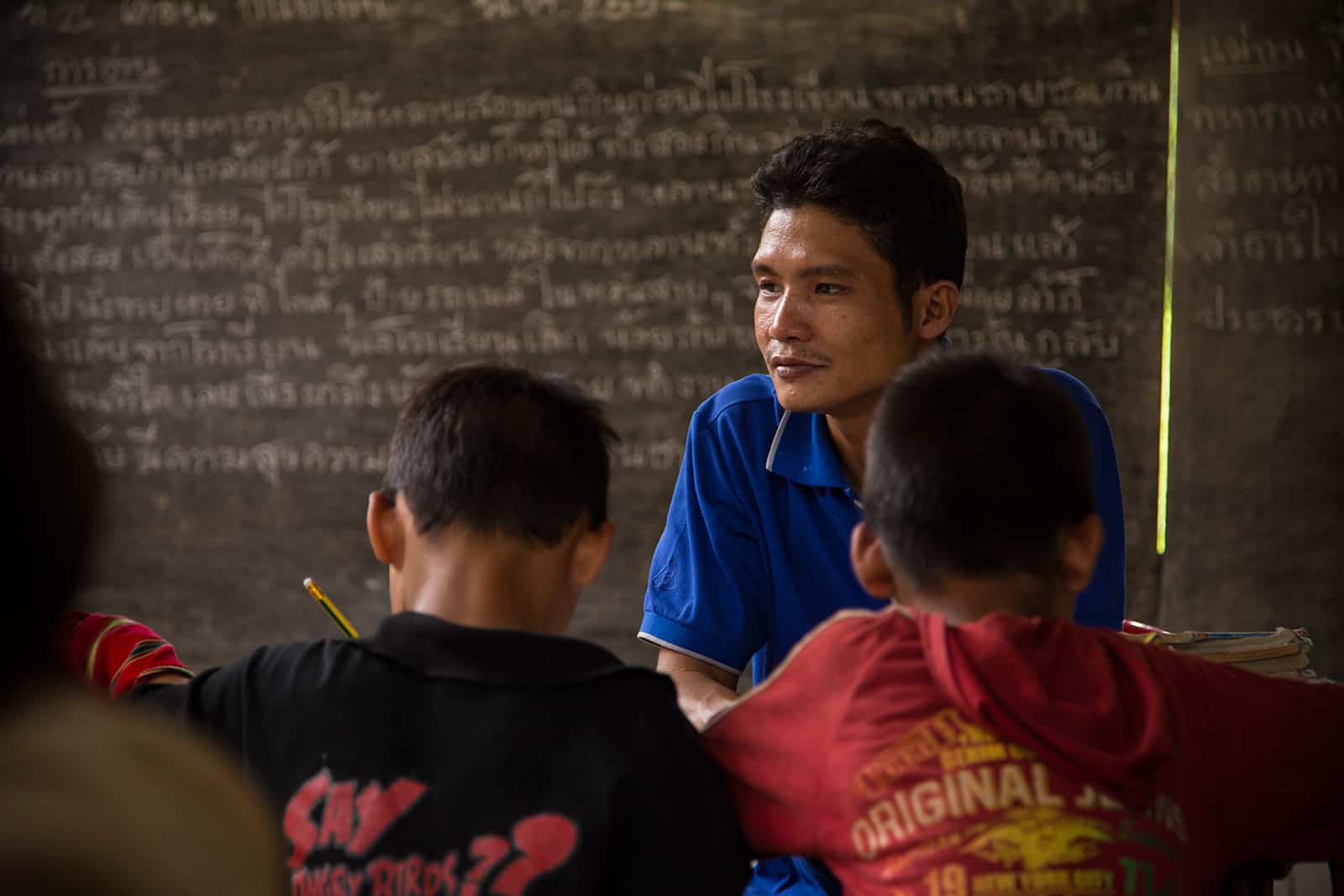
“I encourage them as much as I can,” says Worawut, “And I support them. Every staff member of mine who wants to further his or her education to help our children, I will help [them] go to school again.”

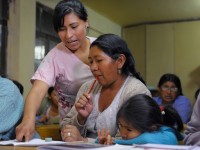
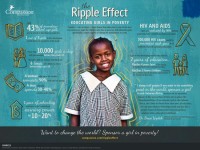
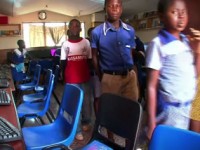



4 Comments |Add a comment
The idea of having literacy classes for workers in Thailand those who were unable to receive an education at an earlier age is a great opportunity. The child development centers are helpful because they provide the resources and the education students need to help become successful. I like how the blog talks about “turning mirrors into windows” when it comes to education. I agree that poverty is something that can make children feel they are incapable of learning or being educated. It appears a person’s socioeconomic status can make them feel they are not good enough to learn. Living in poverty can be hard for children and it might decrease their confidence or self -esteem. That is why I think it is important that this program wants to help changes this current problem that children living in poverty might be faced with. It is important to I feel that working towards this goal will be a positive step towards helping those in poverty. The children of Thailand can be educated and learn to also help their family members as well if they were unable to receive an education.
I find that seeing someone use their new found knowledge of literacy and other elements of education puts forth an idea of hope. The hope that no matter where you come from, you will be able to learn regardless of your circumstances. The desire to learn comes from interactions with people who see learning as a way of success. Allowing children and women from poverty stricken areas to have the access and ability to gain knowledge that will help them to become more enriched in life will lead them to success. This comes through having access to literature and being taught the ways of literacy.
This blog post helps to share what literacy can do for an individual from any ethnicity, using any language, at any age. This was something I needed to see. As a graduate student as well as an elementary school teacher, I think of young, school aged children automatically when I think about literacy, however, the need for literacy is universal. Just because an individual is past the “key developmental learning” years does not mean literacy cannot be learned. An education is learned through literacy skills and it is education that can turn mirrors into windows. When an individual is uneducated, they can only see themselves as not worthy to learn. Once we start knocking down those walls, at any language, we can assist those individuals into seeing their full potential. Show them that they ARE capable of success if they just put their minds to it.
What a compassion international doing its ministry is marvelous and most relevant for the poor of the world. What is more fruitful is that they also reap what they do. That is, the compassion witness instantly the results of their works. I thank God for this ministry. As I have seen in these articles of how the compassion works and saw the results through recipients of sponsorship that have changed their lives whose lives without compassion might remain deplorable. I am part of this ministry in one of the child development centers of North East India. I am excited to help compassion children.